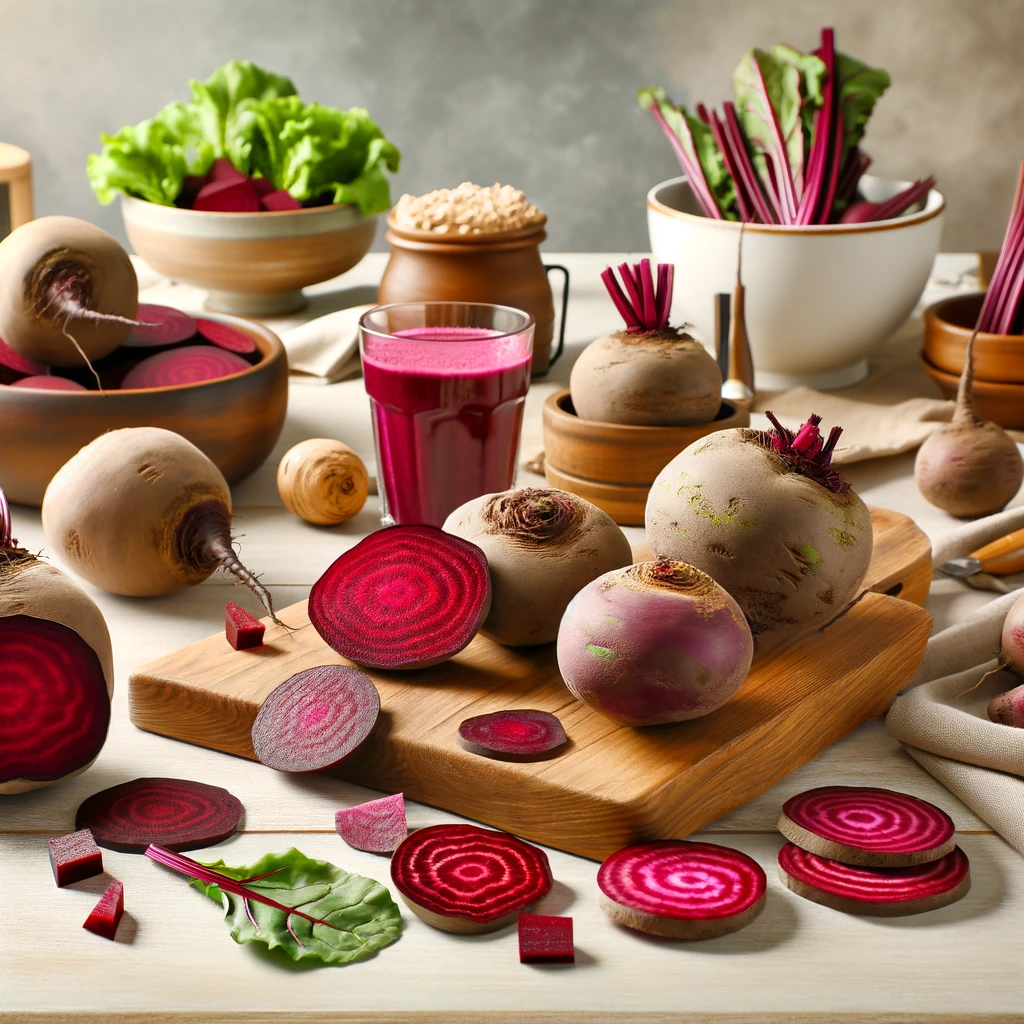reliable food sales
Beets
Beets
Couldn't load pickup availability
Beets are vibrant, nutrient-rich root vegetables known for their deep red color and sweet, earthy flavor. Versatile and packed with health benefits, beets are a popular choice in both culinary and health-conscious circles. They can be enjoyed in a variety of dishes, from salads and soups to juices and desserts.
What are Beets? Beets (Beta vulgaris) are root vegetables that grow underground with leafy greens above the soil. The most common variety is the red beet, but beets also come in other colors, including golden and striped (chioggia). Both the root and the greens are edible and highly nutritious.
Nutritional Profile:
- Vitamins and Minerals: Beets are an excellent source of folate, manganese, and potassium. They also contain vitamin C, iron, and fiber.
- Antioxidants: Beets are rich in antioxidants, including betalains, which give them their vibrant color and have anti-inflammatory properties.
- Nitrates: Beets contain natural nitrates, which can improve blood flow and support cardiovascular health.
- Low in Calories: Beets are low in calories but high in nutrients, making them a great addition to any diet.
Uses in Culinary Applications:
- Salads: Beets can be roasted, boiled, or pickled and added to salads for a sweet and earthy flavor. They pair well with ingredients like goat cheese, nuts, and citrus.
- Soups: Beets are a key ingredient in borscht, a traditional Eastern European soup. They can also be used in other soups to add color and depth of flavor.
- Juices and Smoothies: Fresh beets can be juiced or blended into smoothies for a nutrient-packed drink. They combine well with other fruits and vegetables.
- Roasting: Roasted beets develop a sweet, caramelized flavor. They can be seasoned with herbs and spices and served as a side dish or added to grain bowls.
- Pickling: Pickled beets are a tangy and sweet treat that can be enjoyed on their own or added to sandwiches and salads.
- Desserts: Beets can be used in baking to add moisture and natural sweetness to cakes and brownies, as well as a striking color.
Health Benefits:
- Heart Health: The nitrates in beets help dilate blood vessels, improving blood flow and reducing blood pressure, which supports heart health.
- Anti-Inflammatory: The betalains in beets have anti-inflammatory properties that may help reduce inflammation in the body.
- Digestive Health: Beets are high in dietary fiber, which supports healthy digestion and regular bowel movements.
- Detoxification: Beets contain compounds that support liver function and help detoxify the body.
- Athletic Performance: The nitrates in beets can enhance athletic performance by improving oxygen use and stamina.
How to Use:
- Preparation: Wash beets thoroughly to remove dirt. Peel if desired, although the skin is edible and contains nutrients.
- Roasting: Cut beets into wedges, drizzle with olive oil, season with salt and pepper, and roast at 400°F (200°C) for 25-35 minutes, or until tender.
- Boiling: Place whole beets in a pot of water, bring to a boil, and cook for 30-45 minutes, or until tender. Cool and peel before using.
- Juicing: Peel and chop beets before running them through a juicer. Combine with other fruits and vegetables for a balanced flavor.
- Pickling: Slice cooked beets and marinate in a mixture of vinegar, water, sugar, and spices. Store in the refrigerator for up to a month.
Storage: Store fresh beets in the refrigerator, unwashed, in a plastic bag to maintain freshness. Beet greens should be removed and stored separately, wrapped in a damp paper towel. Cooked beets can be stored in an airtight container in the refrigerator for up to a week.
Beets are a versatile and nutritious vegetable that adds vibrant color and rich flavor to a variety of dishes. Their health benefits, combined with their culinary flexibility, make them a valuable addition to any diet, enhancing both taste and wellness.
Share



